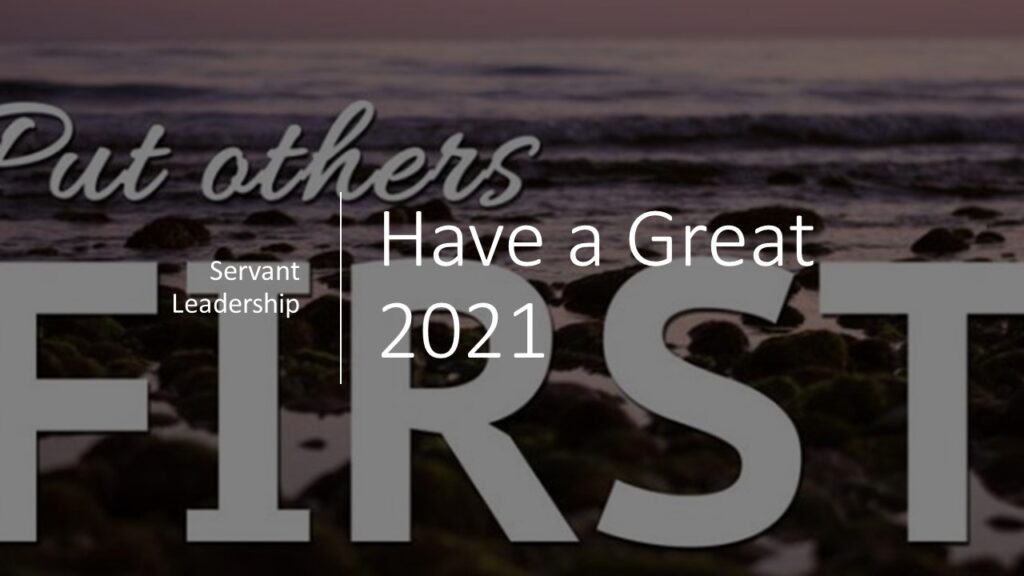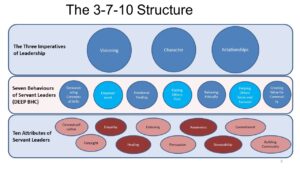Permit me to ask you to do an exercise. Please do pardon me if you feel uncomfortable doing this exercise. Grab hold of a piece of paper and a pen. I would like you to think for a few moments and write down all the major things you did during this year of the pandemic. All of us had a difficult year and at the same time, the year has opened up opportunities for several of us. We have adapted to several things during the year. Write it down. It might be that your learned a new skill, you published a book, or It might be as simple as baking a cake, it might be buying cloths, it might be decorating the home or whatever. Think and write down please.
If you have finished writing it down, go through the list and put a tick mark on the items that were done for others. If you baked the cake for the family, it counts. If you bought cloths for your wife (if she ever allows you to do that; my wife doesn’t trust in my taste, and I admittedly do not have any, in cloths) it doesn’t count (I am kidding, it does). Now, look through the ticked items and identify what you did for your immediate family, immediate relatives, and put another tick mark against the items you did for people outside your family circle. Now sit back and reflect on the items that have the double tick marks.
The year is coming to an end with the Christmas being over, Holiday Season coming to an end and a Grand Finale of the New Year celebrations. This is a season of Joy and celebrations, especially as we are bidding goodbye to an arguably most difficult year this generation has faced.
All of you know that I evangelize Servant Leadership in corporates, and other Organisations. That is my passion, that is my mission and that is the only legacy that I wish to leave. So, when people ask me to define a Servant Leader, I give them this definition.
“A Servant Leader is someone who invests in the life of another person to the extent that the other person becomes better, bigger, wiser, richer, healthier, happier, wealthier, more famous than themselves.”
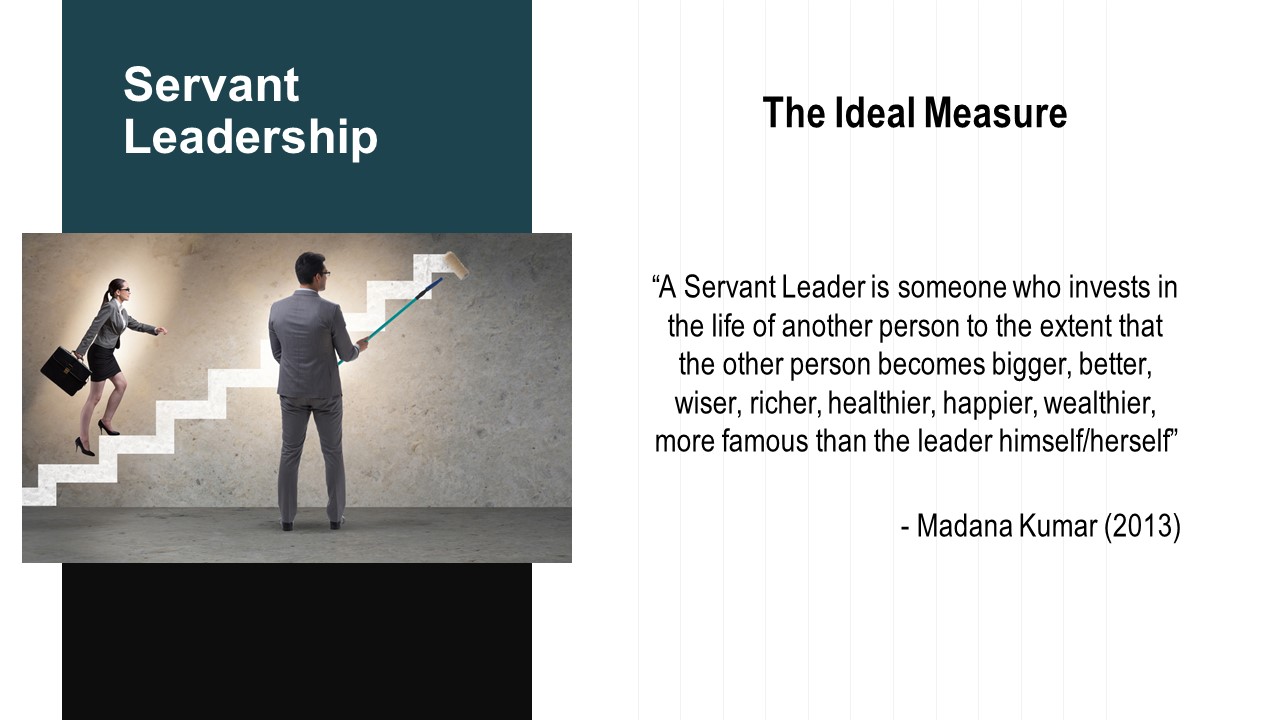
All participants in my workshops are impressed by this definition of Servant Leadership, but soon the “Practical aspects” of this definition starts raising its head. Does it mean that I will need to promote my direct report to be my manager? Does it mean that I give an increment to my team member that his/her salary becomes double that of mine? Practical questions. So, I do have a practical definition, and I do provide a practical definition, so that they don’t get put off by the ideal definition of Servant Leadership that I had articulated above.
But in this blog I want to intentionally keep away from the practical definition of Servant Leadership and ask that we embrace the concept of Putting Others First, in all its original intent. May this be our resolution for the new year. Putting Others First.
Putting Others First is one of the 7 DEEP BHC behaviours that I had written about in an earlier blog. My research shows that this is one of the lowest scoring behaviours in the 360 degree survey that we run before our SLAM workshops.
Let us look at a true story. The story is true, but some of the interpretations are mine in the narration that I have given below.
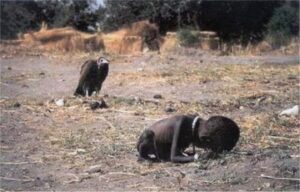
Picture Courtesy: Kevin Carter’s Pulitzer Prize winning photograph of a Sudanese child and a vulture, downloaded from https://en.wikipedia.org/wiki/The_vulture_and_the_little_girl#/media/File:Kevin-Carter-Child-Vulture-Sudan.jpg)
Several of you have seen this picture before. This is a picture taken by photographer Kevin Carter in 1993. This is a picture of a famine stricken Sudanese child who was trying to reach the UN feeding center just half a mile away. The child (initially published as a girl, but later believed to be a boy) was exhausted and could not carry on and the vulture was waiting for its feed. Kevin took the picture and it was published in the New York Times. The horror of the famine that was prevalent in Sudan came alive through this picture and this picture alone brought international attention to the situation in Sudan and significantly increased the donations for relief work in Sudan. Kevin Carter went on to receive the Pulitzer prize for this picture. But the story does not end there. Questions were asked about what did Kevin do actually, after clicking the picture. It is reported that he remarked to his wife that he did chase away the vulture. Yes, chase away the vulture but left the child where he was. Kevin did not think it was necessary, or possible for him to help the child reach the feeding center. The situation in Sudan was very volatile and they had limited time (it seems) and their priority was to click photographs. That was the job that Kevin was charted for. So he did his job and certainly was rewarded handsomely for the great job he did. No one really knows for sure whether the boy survived or did really reach the feeding center finally. Kevin certainly did not know. The guilt and the horror of what he saw and what he did not do, weighed heavily on Kevin Carter and he committed suicide four months after receiving the Pulitzer prize.
This is a sobering story for us to remember this holiday season. In our hurry to celebrate the season, have we missed someone’s urgent need? In our eagerness to do a great job at what we have been assigned to do, have missed noticing the need of another person? In our eagerness to protest against the restrictions we have had through the year about gathering, partying, worship etc, have we missed actions that could edify (build up) others? When we rejoice in healing that we or a loved one has received, or getting a promotion at work, or getting through a difficult situation, or provisions that received when we needed it the most, or whatever it is that we express our Gratitude for, have we paused and considered what did I do with that blessing to others?
I love this quote from Martin Luther, the Christian Reformer. “If there is anything good in us, it is not our own, it is a gift of God. But if it is a gift then it is entirely a debt one owes to love. And if it is a debt owed to love, then I must serve others with it, not myself. Thus, my learning is not my own, it belongs to the unlearned and is the debt I owe to them. My wisdom belongs to the foolish, my power to the oppressed. My wealth belongs to the poor, my righteousness to the sinner. For these are the forms of God of which we must empty ourselves in order to be a servant. It is with all these qualities that we must stand before God and intervene on behalf of those who do not have them.” Even if you are not a spiritual person, this quote might resonate with you.
Before the spirit of Christmas and the Holiday Season wears off this year, and before the new year begins, shall we make a commitment that we will Put Others First?
______________________________________________________________________________________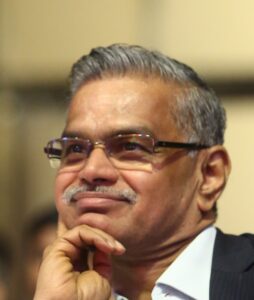
Dr. Madana Kumar, PhD is the Servant Leadership Evangelist and the Chief Consultant at Leadyne. You can connect with him here or mail him here.
______________________________________________________________________________________
Leadyne can help you and your leaders identify where they stand in this Servant Leadership Behaviour of Putting Others First through the 360 Degree assessment. Contact us if you would like to know more.
